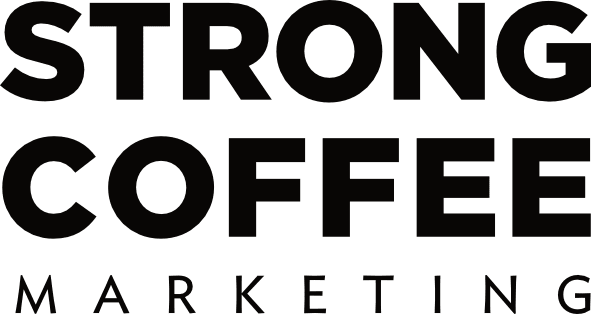I was recently asked to write an article for a local newspaper on small hotels and search engine optimization. Although this is a local hotel SEO focus, these concepts are applicable across all local businesses with a web presence.
Smaller hotels, B&B’s and other businesses have a tough time keeping up to the big chains with regards to how much time and money they can put into online marketing. Google is making updates that help these smaller sites rise up in the search results but there are some key things to consider required in focus and on-site/off-site content.
Is your hotel benefiting from local search results?
One of the main ways you can stand out is to focus on local search. As a local hotel, you have the opportunity to look at location and regional terms as part of your strategy and should be considering this in your optimization. Larger hotel chains will often have the power of website size but you will have the power of local relevancy – but it’s not enough to just be located in the location in question.
So how is it done? Well, first you need to change out the pig for a princess before you put the lipstick on.
Got Content? Be Different!
How can you differentiate yourself? What do you have that you can talk about and is different from every other hotel that is out there? Is it your location? Are you a historic site? Do you have special offers (and not the complementary breakfast that everyone else has). Search engines don’t want to see that same thing every other site has, they want to see something that is different and more applicable to a search query (or search habbits if they are logged in).
That uniqueness needs to translate into content on your website and without that there is nothing to rank with. Unique content isn’t simply your rooms and rates, it can include things like optimized images and multimedia, and user generated content (link to article on UGC)
And with social media becoming increasingly important important as a sign of relevancy or freshness, the better and more interesting the content the more likely someone will share it.
Keyword Use and Research
So you found out how you can add great content and be different, now it’s time for stage two of your homework: what are the words that people are looking for around your product, when, and what words can you win for.
Time to break out free Google tools including:
- Google’s Keyword Tool to discover which keywords and key-phrases guests actually search for and the level of competition for those terms.
- Get webmaster tools for Google and Bing set up on your website to understand history and performance for certain keywords (and to detect potential website errors).
- Review your analytics (you do have this right?) to see which keywords your are doing well and where you may be able to focus and win.
With local SEO make sure to optimize for a combination of your location and your service or property type.
The Experience
Just because you are not a big hotel chain does not mean your website should look like it belongs on the “Worst of the Web”. Would you hire a hotel manager who looked like he/she just crawled out of a grave? Then why would you let a key “salesperson” scare users away with one or a combination of the following:
- Poor information architecture and navigation: silo your content into meaningful, keyword relevant, and basic categories. And NO! you don’t need every last thing on your homepage. Do a good job with your content and your internal pages will get indexed.
- A horrible first impression. Have you ever read Blink? Your subconscious determines what you think about a person’s character in less then 8 seconds. The same thing happens to websites, but typically faster then 8 seconds and we don’t have to stick around for the awkward conversation to follow. I know websites can be expensive but there are great low cost alternatives that produce outstanding sites.
- Poor usability. Do you have a layout consistent with the AIDA model? Good headlines and a clear call to action? You want to storyboard the site from start to finish (that includes before they get to the site). Where would a person go naturally and where do we want them to go? Is it easy? Do we see any roadblocks to conversion? Is there a 6 meg image on the gallery page or an animated graphic that takes 5 minutes to load?
- No concept of conversion. In-line with usability, don’t just bring people to the site, make sure they convert. What do you consider a successful visit for users at different stages of their buying cycle? How do you measure this? How about another look at your analytics.
Get listed
I am amazed that on a daily basis I am talking to companies that have a gmail address but have not yet claimed their business in Google. Get in there and claim it.
Where else can you claim your business? How about sites like Yelp, Tripadvisor or even Mapquest?
When you have claimed a profile look at the following:
- Local search means that you are well… local. With that your address and contact details need to be the same from your website to each and every listing online. I don’t mean the exact same content or description, I mean the same physical address, emails and phone numbers used. Make sure Google knows that it’s you! I’ve also heard that having your location and contact details on the footer of every page in your website is a benefit.
- Get reviews. You can ask visitors to rate their stay. I know people are scared of bad reviews but why not have a card in your pocket with a few of those review sites and the links to your profiles. When someone does say they had a great stay at your hotel or business you can encourage them to leave that great comment.
- Get Competitive. Find out who is listed in the top spots for your keywords and look at where your competitors are getting their links. Is it relevant for you to get a link there too? There are a few way to track this down but I recommend OpenSite Explorer. Sign up for the free 30 day trial while you are doing your keyword and link research. It will also give you insights into whether the links going to your website utilize proper keywords as part of your strategy. How many say “click here”.
- Partnerships and cross promotions. You are a hotel or B&B in the travel industry. Time to find those travel partners, work together and get listed. For example, in Alberta, Travel Alberta offers several opportunities to get listed and be found. Signing up on their industry site gives you potential presence and a place to add your packages. Who do you think would get indexed first for “Edmonton hotel deals”? You or a well established page rank 7 site?
Mistakes
What mistakes are people making or where can they get themselves in trouble?
- Not thinking of the whole experience from start to finish. Make your hotel website “have me at hello” and keep me from start to finish. Don’t be the sketchy guy I can’t wait to get away from.
- Not being natural. Work on making people happy with your content. Don’t think you can game the SEO system. Over optimization by keyword stuffing or buying backlinks is a no no.
- Fake reviews in listing sites. Don’t do it. They have people way smarter then most of us working on algorithms to game the gamers.
- Not looking at your analytics or doing the research to see what is working and what is not.
Hotel and accommodation search optimization for the small hotels is not easy, but that’s why you will be creative, right? It takes time but if you build it into your routine and you take the opportunities that exist in the travel industry you stand to gain a lot!
Recent Posts
Navigating the Digital Buying Cycle: Strategies for Modern Consumers
In today’s fast-paced world, where information is just a tap away, the buying cycle has transformed dramatically. Gone are the days when consumers...
Digital Marketing Strategies in the Off-Season
Ah, the off-season. For some businesses, it’s a time to kick back, relax, and sip on a well-deserved latte. For others, it’s a...
How ChatGPT is Transforming Online Search Behaviour
In the ever-evolving landscape of digital information, the way we search for answers is undergoing a seismic shift. We got used to searching...



